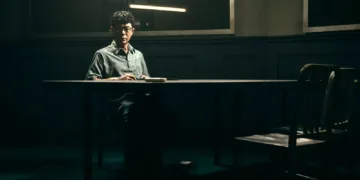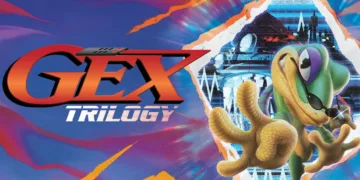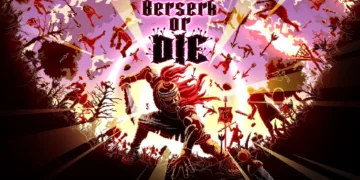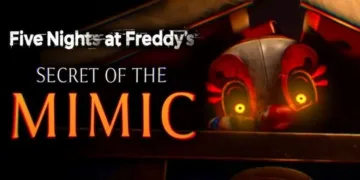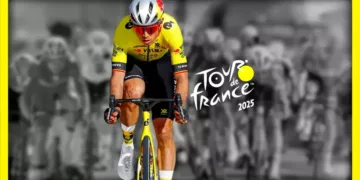In an era where reality television has become increasingly self-aware about its own manipulative tendencies, Fox’s “The Snake” arrives as both a mirror and a magnifying glass for our collective fascination with social warfare. Hosted by Australian comedian Jim Jefferies, this latest entry into the reality competition landscape presents fifteen contestants from disparate professional backgrounds—pastors rubbing shoulders with OnlyFans creators, police officers strategizing against former jewel thieves, cheerleaders plotting with tech executives—all vying for a $100,000 prize through pure social manipulation rather than physical prowess.
The show’s central innovation lies in its elimination mechanism: rather than traditional voting systems, contestants navigate an immunity-passing structure where weekly challenge winners become “The Snake,” wielding the power to orchestrate eliminations through a cascading ceremony of salvation. This process continues until only two remain, with The Snake determining the final elimination. Set against the backdrop of a recreated 17th century mission hotel in Argentina, the series operates under the motto “Befriend, Betray, or Be Gone,” explicitly positioning social survival as the primary currency of success.
The casting choices themselves reveal a fascinating anthropological experiment: each contestant represents a profession built on persuasion, from religious leadership to law enforcement to entertainment. Many adopt identifying costumes—clerical collars, police gear, cheerleader uniforms—that transform personal identity into strategic performance art.
Deconstructing the Power Dynamics
The “Saving Ceremony” serves as the show’s most revealing ritual, where contestants stand on brick platforms arranged in a serpentine pattern, awaiting selection in what resembles a twisted version of childhood playground politics. This format creates a radically different social ecosystem compared to traditional reality competitions. Where shows like Survivor or Big Brother require contestants to build broad coalitions and navigate complex voting blocs, The Snake reduces the social game to its most essential elements: contestants need only secure the favor of The Snake and one other person to survive any given week.
This streamlined approach to alliance-building raises questions about whether the format creates genuine strategic depth or merely simplifies the social dynamics to the point of predictability. The weekly challenges, seemingly borrowed from established franchises like Fear Factor and The Challenge, serve primarily as vehicles for determining power rather than showcasing diverse skill sets. The inaugural episode’s snake-handling challenge exemplifies this approach—a straightforward test of nerve that efficiently separates the willing from the squeamish.
The show’s emphasis on deception creates an interesting tension between contestants who arrive with elaborate pre-planned strategies, like tech executive Kethryn with her phone full of lies and manipulation tactics, and those who approach the game through authentic relationship-building, such as pastor Jacob. This dichotomy reflects broader cultural debates about authenticity versus performance in our increasingly digital age, where curated personas often matter more than genuine connection.
Yet the format’s reductive nature may inadvertently expose the limitations of reality television’s social experiments. By removing the need for complex political maneuvering, The Snake risks transforming strategic gameplay into a simple popularity contest between pairs of contestants.
Performance and Production as Cultural Artifact
The casting of “The Snake” reads like a deliberate cross-section of American archetypes, each profession representing different forms of institutional authority and social influence. Frank, the makeup artist with his flamboyant persona and distinctive voice, embodies the entertainment industry’s embrace of performative identity. Kethryn’s calculated approach to deception reflects corporate culture’s emphasis on strategic thinking over emotional intelligence. Jacob’s faith-based relationship-building represents traditional community values in an increasingly secular competitive landscape.
Jim Jefferies’ hosting style brings an irreverent energy to the proceedings, his snarky commentary serving as a running critique of the contestants’ machinations. His Australian outsider perspective allows him to mock American reality television conventions while participating in them—a meta-commentary that feels particularly relevant in our current moment of cultural self-examination.
The production values, however, tell a more troubling story about the show’s priorities. Lighting issues plague crucial moments, with shadows obscuring contestants’ faces during key selections and harsh backlighting washing out participants during sunset ceremonies. These technical failures suggest a production more concerned with creating content quickly than crafting meaningful television.
The location choice—a recreated 17th century mission hotel in Argentina—carries uncomfortable historical weight. Using a sanitized version of colonial religious architecture as the backdrop for a competition about manipulation and betrayal feels tone-deaf, particularly given the original missions’ role in cultural suppression. The show’s failure to acknowledge this context reflects reality television’s broader tendency to treat global locations as interchangeable backdrops rather than culturally significant spaces.
The costume gimmick, where contestants wear identifying uniforms throughout multiple episodes, transforms personal identity into brand management. This reduction of complex individuals to visual shorthand mirrors social media’s influence on self-presentation, where authenticity becomes just another performance strategy.
The Future of Social Competition
The Snake’s primary innovation—its streamlined elimination process—represents both its greatest strength and most significant limitation. By reducing the social game to its essential components, the format has potential to create more focused strategic gameplay as contestants adapt to influencing fewer people. This approach could signal a broader trend toward efficiency in reality television, where complex social dynamics are distilled into more digestible formats for audiences with shorter attention spans.
However, the show’s execution reveals critical weaknesses that undermine its innovative premise. Character development remains superficial, with producers relying on repetitive flashbacks rather than meaningful relationship exploration. The simplified social dynamics may not provide sufficient complexity for sustained strategic interest, particularly as the season progresses and contestant numbers dwindle.
The casting raises questions about whether reality television can successfully manufacture the level of deception and social manipulation that modern formats demand. Many contestants appear ill-equipped for the psychological warfare the show ostensibly requires, suggesting a fundamental mismatch between concept and execution.
For viewers seeking genuine innovation in reality competition formats, The Snake offers glimpses of potential buried beneath production missteps and conceptual limitations. The series might appeal to those who prefer personality-driven content over strategic complexity, but it struggles to justify its existence in an increasingly crowded marketplace of social manipulation entertainment.
The show’s long-term success depends on whether it can evolve beyond its initial gimmick to create meaningful connections between contestants and audiences—a challenge that requires exactly the kind of authentic relationship-building that its format systematically discourages.
Full Credits
Writers: SallyAnn Salsano
Producers and Executive Producers: Frank Miccolis, Kim Green
Cast: Jim Jefferies, Elysia Rotaru, Derek North, Kethryn Cavender, Alyssa Grassie, Frank Lavecchia, Jacob Buchholz, Jack Micco, Amanda Short, MacLaine Funsch, Brett Covalt, Devonte Kavanaugh, Cody Brewer, Bryan Sobolewski, Jordan DeJesse, Christine Pierre, Mena Samara, Kailee Fessock
The Review
The Snake
The Snake presents an intriguing elimination format that could revolutionize reality competition television, but falls short due to shallow character development, production issues, and a reductive approach to social strategy. While Jim Jefferies brings sardonic energy and the diverse cast offers potential, the show feels like a missed opportunity to explore meaningful social dynamics. The series works best as a cultural artifact reflecting our current obsession with performative authenticity rather than genuine entertainment.
PROS
- Innovative immunity-passing elimination system
- Diverse cast representing different social archetypes
- Jim Jefferies' irreverent hosting style
- Streamlined format accessible to casual viewers
- Potential for focused strategic gameplay
CONS
- Poor production values and lighting issues
- Shallow character development
- Oversimplified social dynamics
- Culturally insensitive location choice
- Forced costume gimmick
- Lack of strategic depth compared to established formats



























